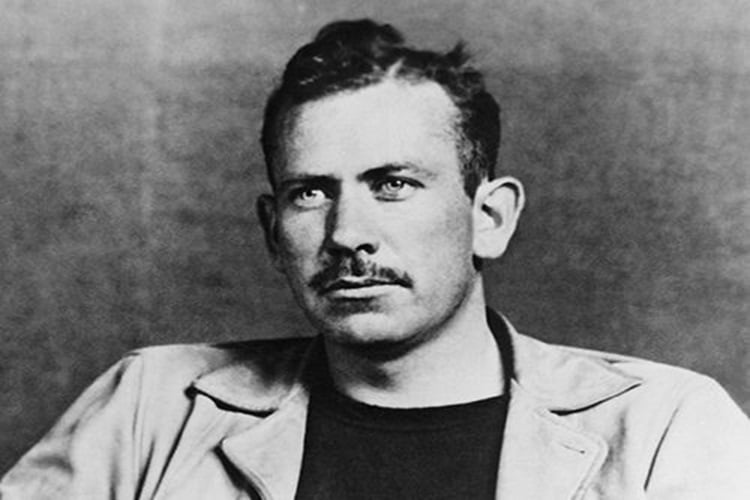Remembering an Icon: Honouring the Contributions of John Steinbeck

John Steinbeck (27 February 1902 – 20 December 1968) was an American writer. In 1962, Steinbeck was awarded the Nobel Prize in Literature.
Life and Career
John Steinbeck was born on February 27, 1902, in Salinas, California, USA. He grew up in a rural setting, and this environment would later influence many of his works. His father, John Steinbeck Sr., worked as the treasurer of Monterey County, and his mother, Olive Hamilton Steinbeck, was a former schoolteacher. Steinbeck’s upbringing was comfortable, and he developed an early interest in literature.
Steinbeck attended Stanford University, where he studied English literature and writing. He left Stanford in 1925, without completing his degree, to pursue a career as a writer. Despite not finishing his formal education, Steinbeck’s time at Stanford had a profound impact on his intellectual development.
Steinbeck’s literary career began with the publication of his first novel, “Cup of Gold,” in 1929. However, he gained widespread recognition with the publication of “Tortilla Flat” in 1935, a novel that explored the lives of paisanos (a term used to describe rural, Mexican American laborers).
His most famous work, “The Grapes of Wrath,” was published in 1939 and is considered a classic of American literature. The novel tells the story of the Joad family, impoverished farmers who migrated to California during the Dust Bowl era. It won the Pulitzer Prize for Fiction and the National Book Award.
Steinbeck continued to produce significant works, including “East of Eden” (1952), “Of Mice and Men” (1937), and “Cannery Row” (1945), among others. His writing often focused on social issues, injustice, and the struggles of ordinary people.
Apart from novels, Steinbeck wrote numerous short stories, non-fiction works, and plays. He was also a war correspondent during World War II, contributing to the New York Herald Tribune.
John Steinbeck passed away on December 20, 1968, in New York City, USA, at the age of 66.
Award and Legacy
In 1962, Steinbeck was awarded the Nobel Prize in Literature for his “realistic and imaginative writings, combining as they do sympathetic humor and keen social perception.”
He won the Pulitzer Prize for Fiction in 1940 for “The Grapes of Wrath,” which remains one of his most celebrated works.
Steinbeck’s works continue to be widely read and studied in schools and universities worldwide. His ability to capture the essence of American life during the Great Depression and beyond has left a lasting impact on literature.
Steinbeck’s novels often serve as social commentary, addressing issues of poverty, inequality, and the human spirit. “The Grapes of Wrath” and “Of Mice and Men” are particularly praised for their depiction of societal injustices.
Many of Steinbeck’s works have been adapted into successful films, further extending his influence on popular culture. Notable adaptations include the film versions of “The Grapes of Wrath” and “East of Eden.”
The John Steinbeck Award, established in 1996, honors writers, thinkers, and activists who embody the spirit of Steinbeck’s social engagement. The award is presented by the Martha Heasley Cox Center for Steinbeck Studies at San Jose State University.
Steinbeck’s literary achievements are frequently discussed in academic circles, and his books are considered essential reading for understanding American literature and history.
Many contemporary authors cite Steinbeck as an influence, and his thematic exploration of human nature and societal issues continues to resonate with readers of all ages.
Observer Voice is the one stop site for National, International news, Sports, Editor’s Choice, Art/culture contents, Quotes and much more. We also cover historical contents. Historical contents includes World History, Indian History, and what happened today. The website also covers Entertainment across the India and World.
Follow Us on Twitter, Instagram, Facebook, & LinkedIn

